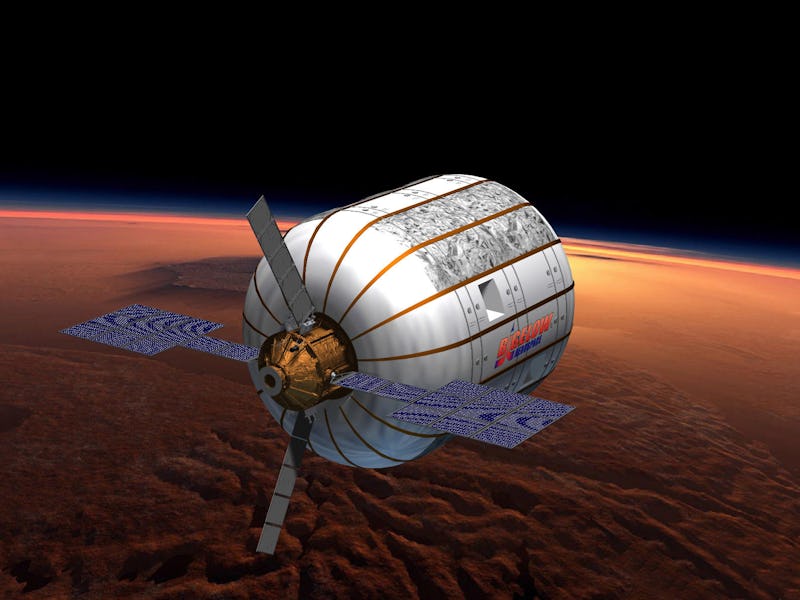Bigelow, ULA to Launch Space Hotels for Scientists, Tourists, Maybe Airbnb
No vacancies until at least 2020.

Many of us may dream of one day becoming space tourists, but we’re going to need some place to stay the night. Beyond bunking with the astronauts, who probably wouldn’t be too happy to have to share their already-limited space, commercial space travelers currently don’t have many long term options if they want more than just a jaunt into low-earth orbit. Now, Bigelow Aeorospace and United Launch Alliance have agreed to build and launch the first commercial space pods that may even link to the International Space Station.
The proposal could have radical implications for space travel, offering numerous locales in orbit around Earth, the Moon, or even one day Mars, available to scientists or visitors currently unable to access the exclusive ISS.
“This innovative and game-changing advance … enables destinations in space for countries, corporations, and even individuals far beyond what is available today, effectively democratizing space,” says Tory Bruno, ULA president and CEO, in a statement. “We can’t begin to imagine the future potential of affordable real estate in space.”
The announcement seems timed to the arrival of the Bigelow Expandable Activity Module on the ISS earlier this week aboard a capsule launched by the SpaceX Falcon 9 rocket. The capsule easily travels to the ISS in a folded position, only to be inflated to its full size once it is securely attached to the side of the space station.
'Artist rendering of Station Alpha with four BA 330s (1340M3 volume) and three SpaceX Dragons attached,' according to Rocket Stem.
The first module planned for the partnership will offer a well-sized option for researchers and commercial space travelers, though with a maximum capacity for six people, it could even get a little crowded. The B330 offers 330 cubic meters (12,000 cu ft) of space for visitors to either live or conduct research. If joined to the side of the ISS, the module would boost the total volume of the station by 30 percent.
The two companies are currently outfitting the Bigelow module to launch aboard a ULA Atlas V rocket. The planned date for a first launch of a module is set for 2020, though it’s not clear when the first visitors will be able to access their rooms. It’s also unknown how the company will outfit the modules for scientific research or whether scientists must bring their own tools.
While much has been made of the potential for space travel in recent years, less discussion has focused on what people will do once they actually arrive outside of Earth’s atmosphere. The Bigelow/ULA team is trying to address this question by opening up the number of spots in space and offering a range of potential activities. It’s an important leg of the effort to make space more accessible, and it’s starting now. And with an official launch partner in ULA, Bigelow can officially claim to be winning the space hotel race. Next move is yours, Airbnb.